03:59
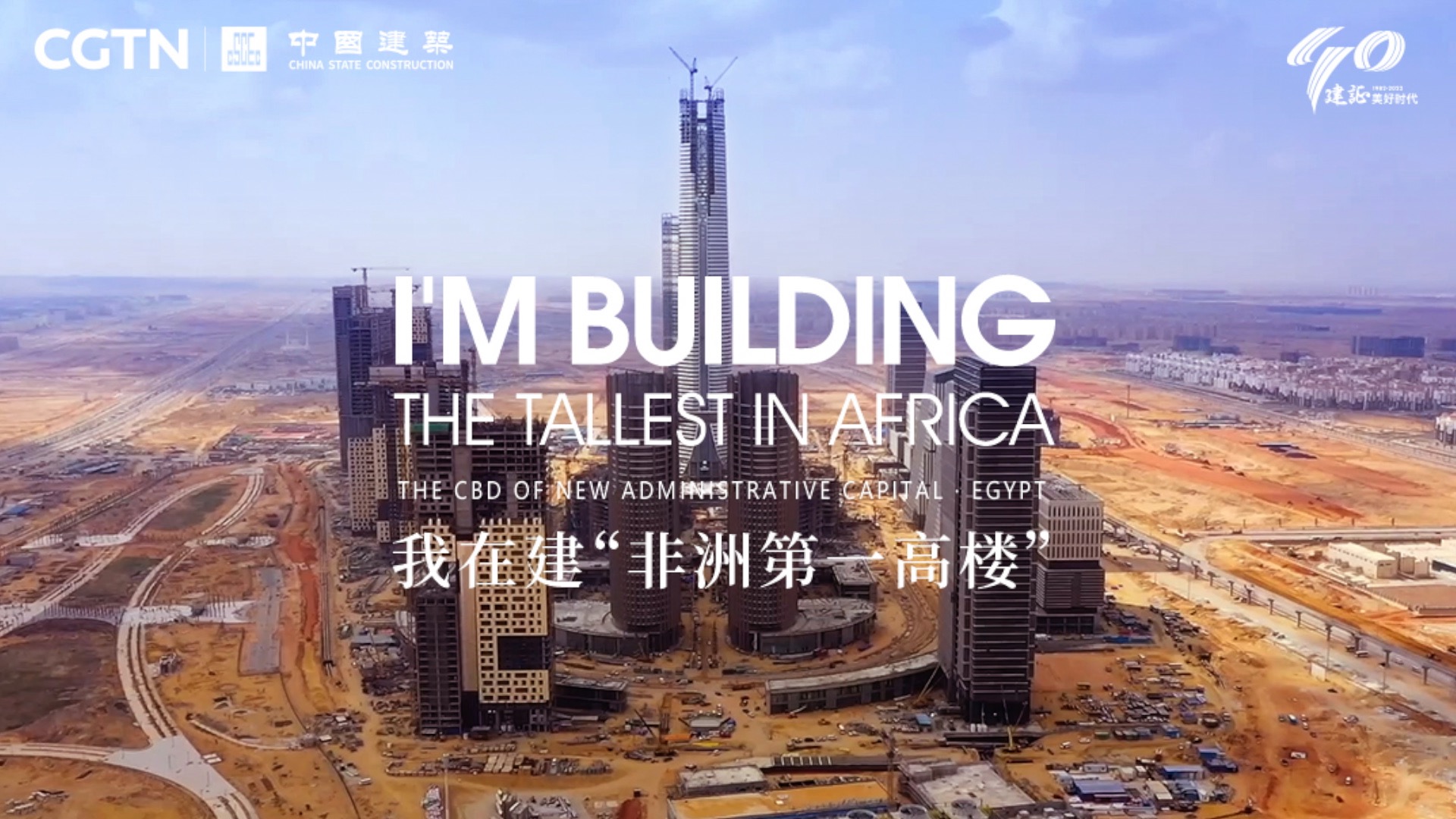
Before most of the Egyptian capital's residents wake up, Waleed Ramadan has already had breakfast, got dressed, and is ready to go to work. He waits for a bus to take him from his home on the eastern outskirts of Cairo further into the desert where an Egyptian dream is under construction – a new administrative capital.
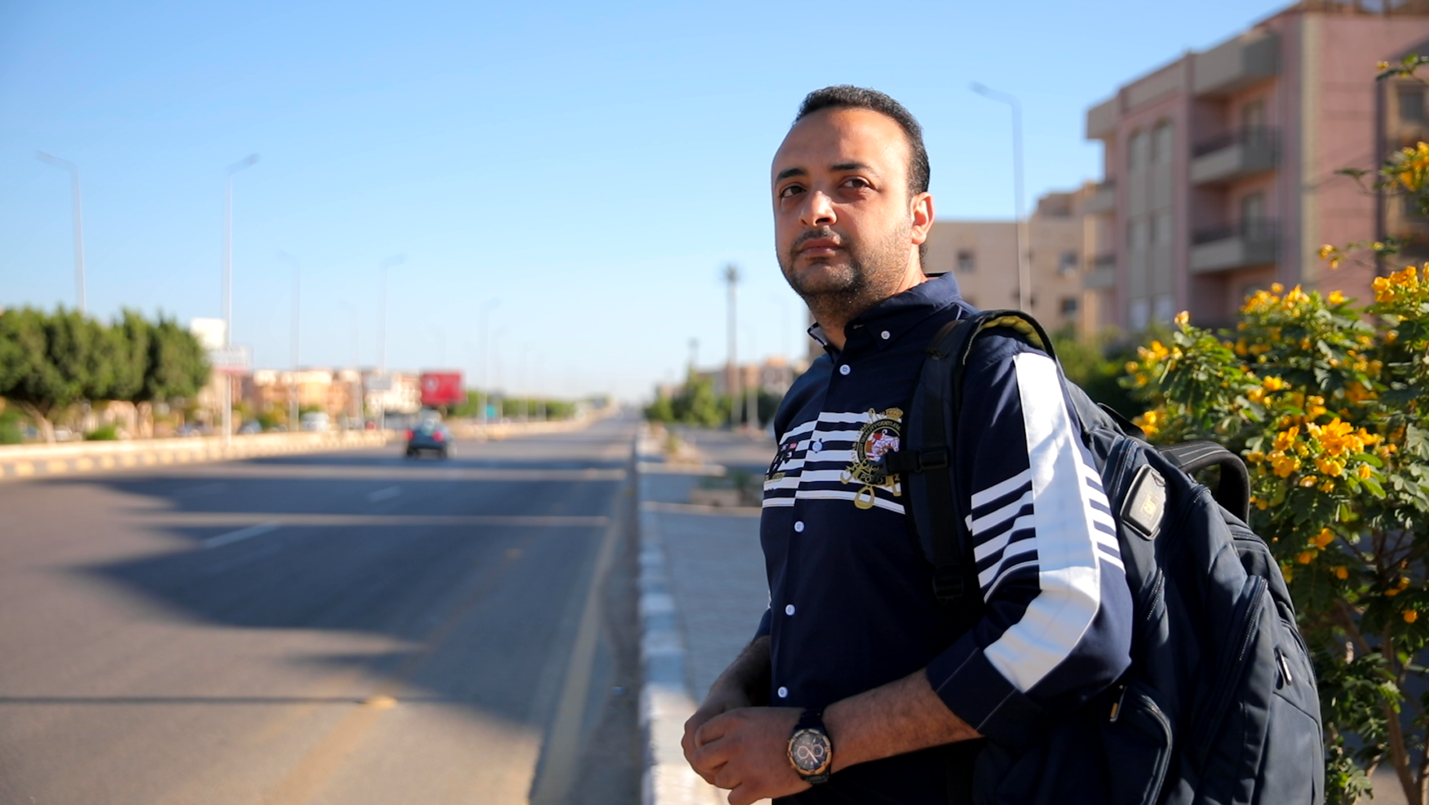
Waleed Ramadan waits for his work bus in Shorok City, east of Cairo. Ashraf EL Mahrouky/CGTN
Waleed Ramadan waits for his work bus in Shorok City, east of Cairo. Ashraf EL Mahrouky/CGTN
The journey to the Central Business District (CBD) takes about an hour. Although the landscape is mostly desert, the 33-year-old engineer knows he's close when he glances skyward. Several kilometers away, he can see the silhouette of 20 buildings piercing the clouds as Egypt enters the world of skyscrapers for the first time in its history.
Ramadan is a technical engineer at China State Construction Engineering Corporation (CSCEC), the company leading the CBD construction. It is the biggest project of the Belt and Road Initiative.
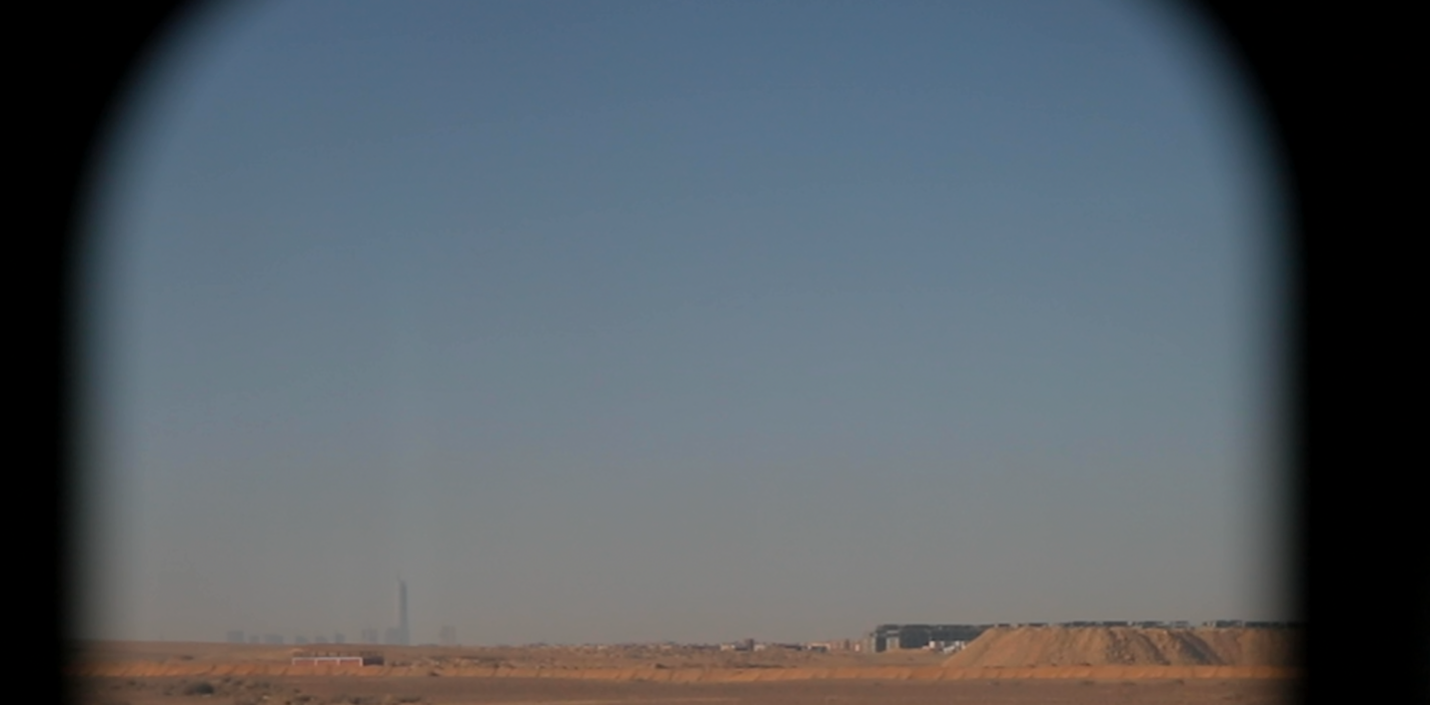
CBD towers appear in the desert horizon. Ashraf EL Mahrouky/CGTN
CBD towers appear in the desert horizon. Ashraf EL Mahrouky/CGTN
"When I learned that CSCEC signed the contract with Egypt for this project. I focused my efforts to approach them for a job opportunity. Thank God, they called me for an interview. I started work from the very beginning, since the digging began," Ramadan said.
The project has given him the experience of a lifetime. The CBD is going to be a landmark of the new Egyptian capital. It includes 20 high-rises built on more than 500,000 square meters of land and a constructed area of 1.92 million square meters. Egypt has never seen anything of this magnitude.
The iconic tower is the most remarkable building in the project. It's 385.8 meters high, the tallest in Africa. It has 78 floors that will house business offices, residential apartments, a hotel and government buildings.
After just three and a half years, the construction of the tower and all the other buildings are complete; what remains is just the finishing touches.
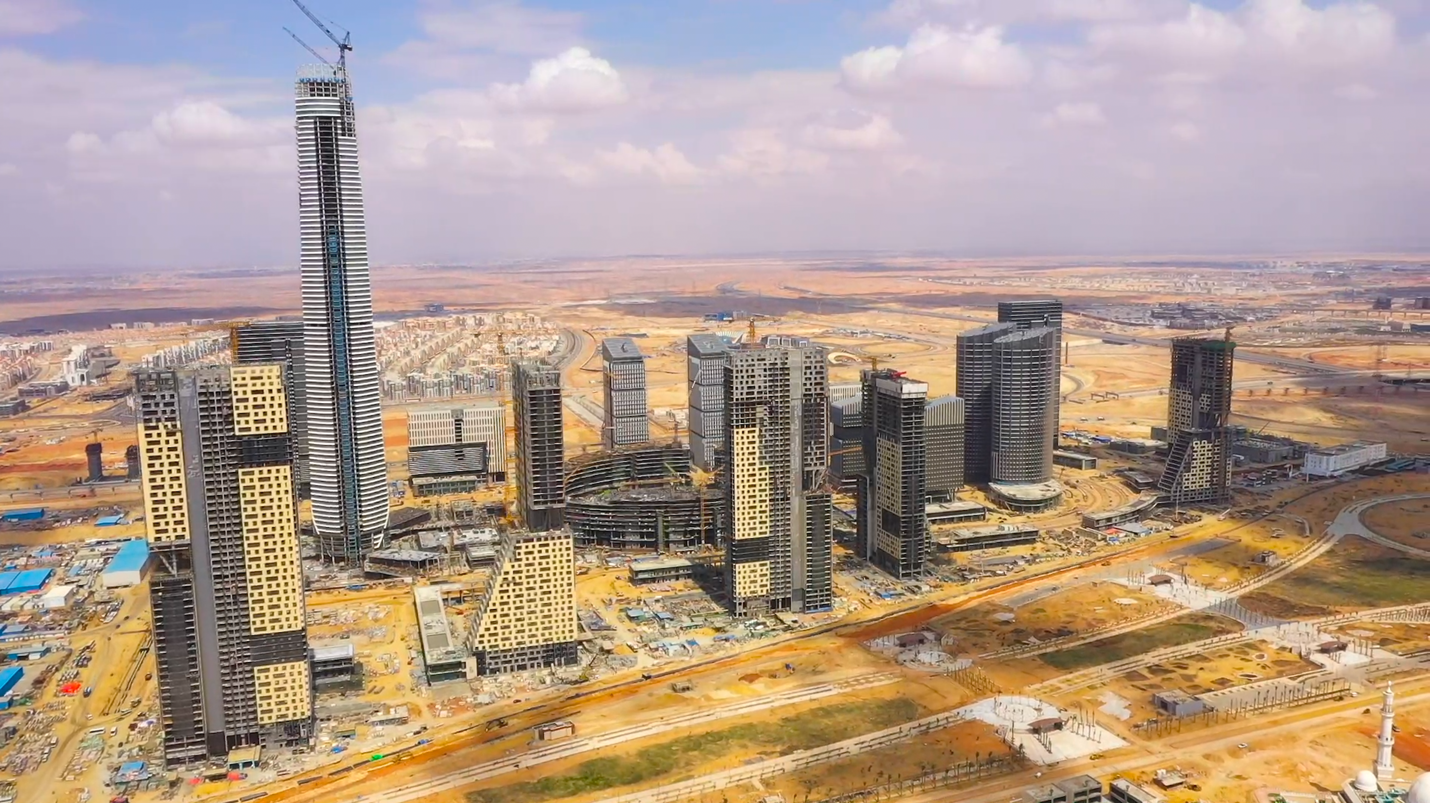
CBD will be the business hub of Egyptian new administrative capital. /CSCEC
CBD will be the business hub of Egyptian new administrative capital. /CSCEC
It's remarkable progress given the impact the COVID-19 pandemic has had on businesses. Chang Weicai, the general manager of CSCEC Egypt, said that work was barely interrupted.
"Since the project started in 2018, CBD has been in normal progress. Even in the tensest times at the beginning of 2020 during the COVID-19 pandemic, the progress rate was reduced but the construction never stopped," he proudly indicated.
The construction site went into full lockdown when the pandemic started. Thousands of engineers and workers stayed on site for nearly nine months, working around the clock, only communicating with families virtually.
"Sometimes work continued for 24 hours straight, to keep up with the time schedule set for us," Ramadan recalled.
To run a $3.8-billion project non-stop during the peak of a massive interruption to global supply chains is a phenomenal achievement. CSCEC said they had to modify their usual workflow to keep up with the emerging global challenges at the time.
"The global supply chain issues had a great impact on the project. We've quickly taken measures to make us flexible at meeting these changes by choosing our materials from alternate providers so the impact on construction progress would be minimal," Chang said.
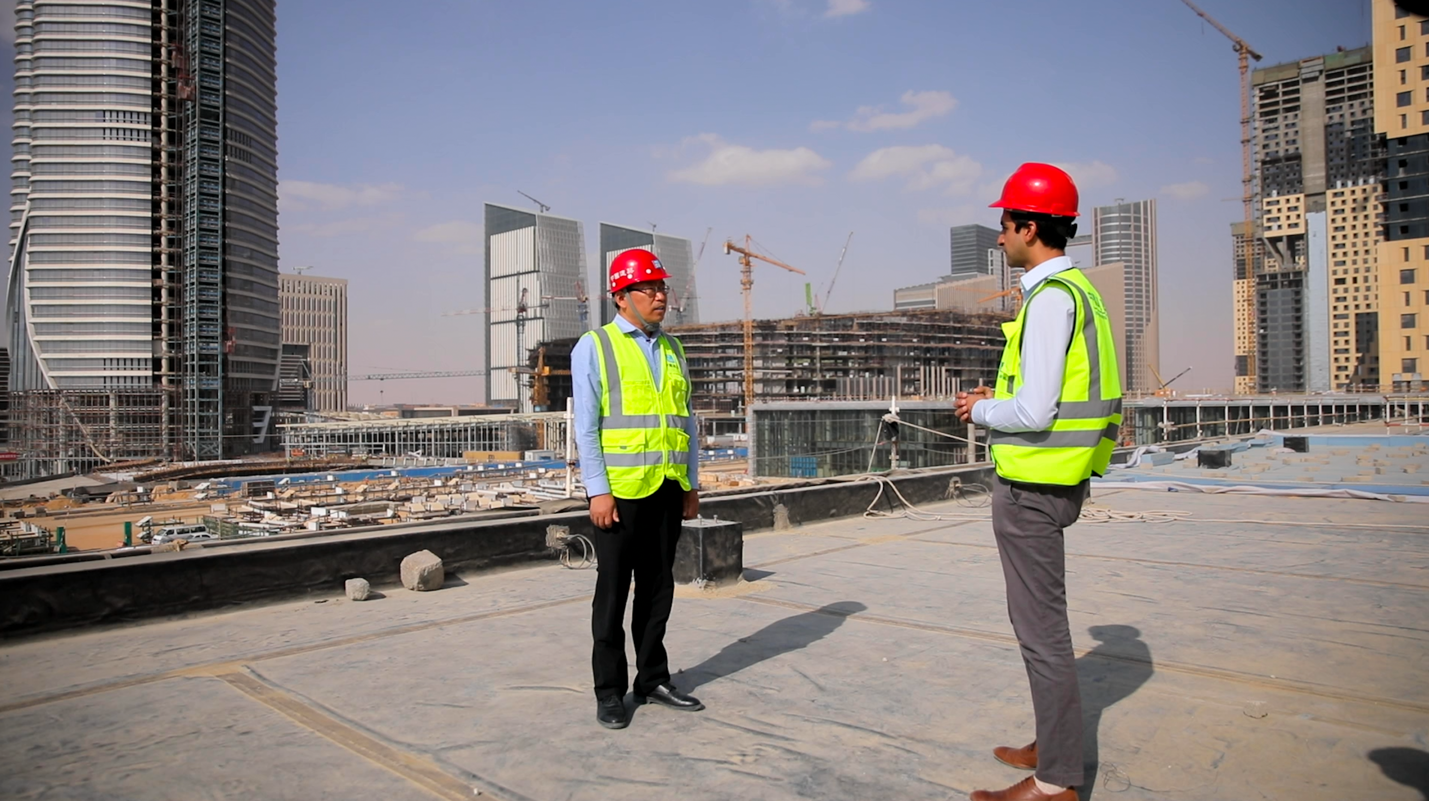
CSCEC Egypt General Manager Chang Weicai speaks to CGTN reporter Adel EL Mahrouky. /CGTN
CSCEC Egypt General Manager Chang Weicai speaks to CGTN reporter Adel EL Mahrouky. /CGTN
Like most developmental projects between China and Egypt, the exchange of knowledge and transfer of Chinese technology is a fundamental aspect of CBD. For this purpose, CSCEC established the Luban institute, a training facility that aims to lift the technical capabilities of Egyptians working with the company in building the business hub of Egypt's future capital.
Chang said that such an educational program could greatly develop the construction sector in Egypt.
"We set up this training institution to train local workers and engineers and to cultivate their technical skills," he said. "Our aim was to empower them with the actual needs of the project. Egypt is strong in the construction field. The time Egyptians spent here in the CBD project has given them a lot of experiences. I believe that after the completion of this project the level of construction engineering in Egypt will see a big improvement."
Ramadan concurred, "It's the first time Egypt enters the field of skyscrapers. We started with the iconic tower. The technology that is new to us in Egypt, like the climbing formwork. Luffing tower cranes were used for the first time in Egypt as well and many more techniques and materials. This project transferred a huge amount of Chinese expertise in the construction field. We've benefited a lot."
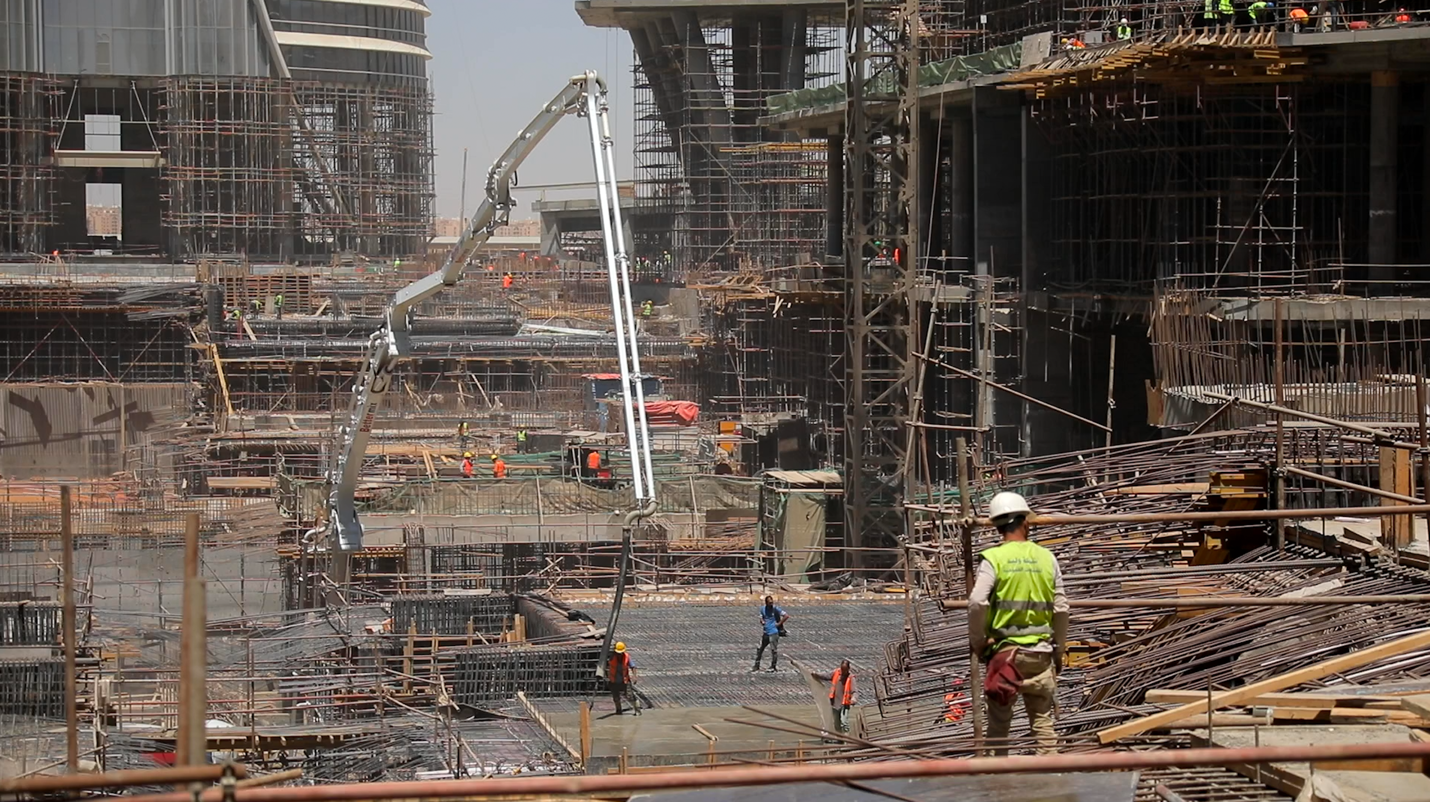
CBD has created some 30,000 jobs through partnerships with 300 Egyptian companies. Ashraf EL Mahrouky/CGTN
CBD has created some 30,000 jobs through partnerships with 300 Egyptian companies. Ashraf EL Mahrouky/CGTN
More than 300 Egyptian companies have joined CSCEC in the project creating some 30,000 jobs.
In 2016, China and Egypt celebrated 60 years of diplomatic ties, which President Xi Jinping and President Abdel Fattah aL-Sisi upgraded to a comprehensive strategic partnership. During the celebrations, the two countries signed the agreement to award the CBD project to CSCEC. It has become an outstanding landmark that will always be a reminder of the strength of ties between the two countries.
Read more: Building Lives: Mission in the desert

